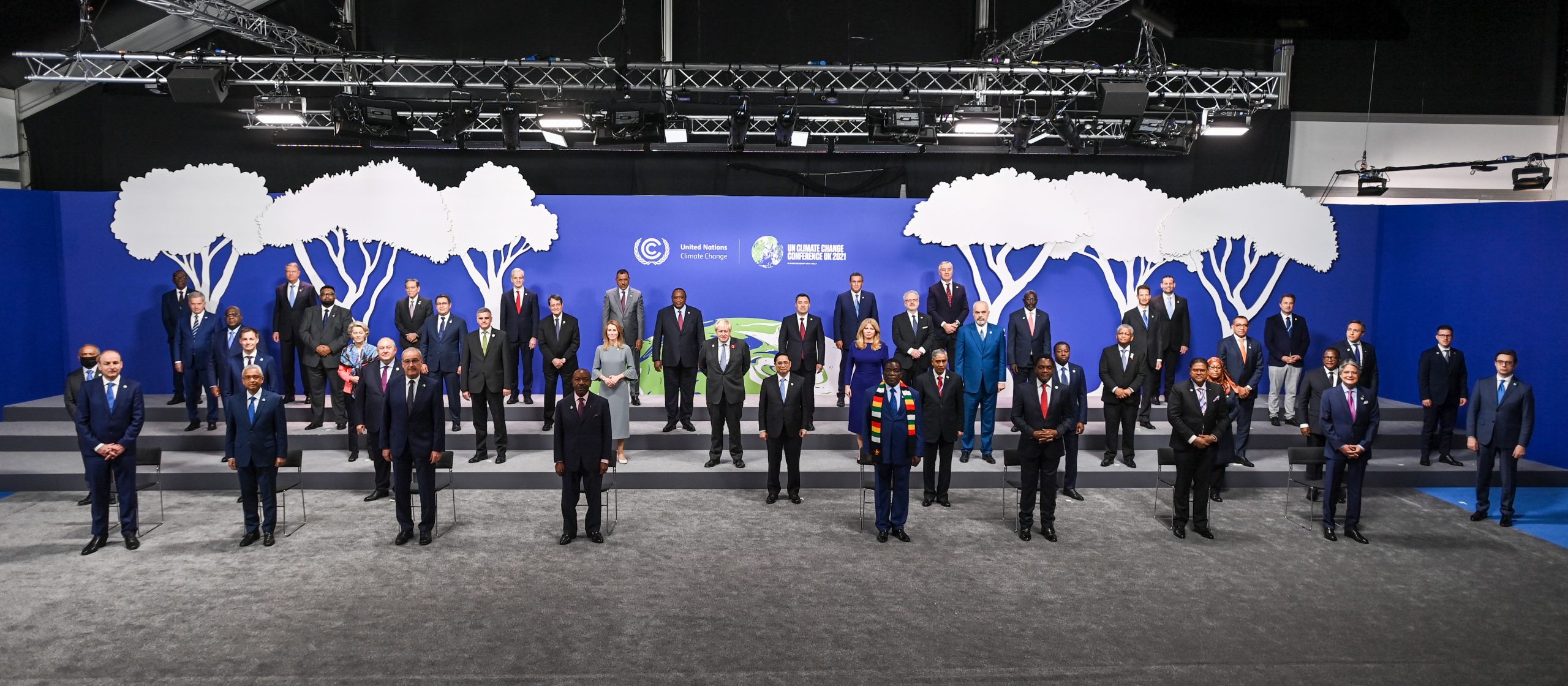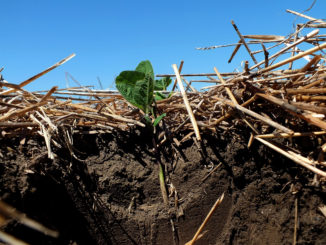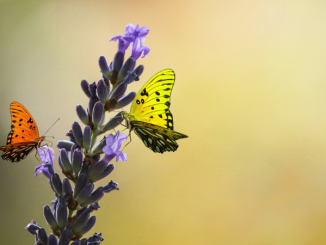
Integrating women’s rights into climate action, with food and farming at the centre, is vital if planetary health is to be successfully restored. This was the message from a Gender Day event at COP26 that underscored the links between climate change, equality and the role of women in agriculture. Ursula Billington reports.
“We can’t destroy the planet and expect technology to save us. We absolutely must protect and steward this earth and its soil.” – Julia Jackson, Soil Sister
Land and soil were at the core of a day-long exploration of women-led action organised by SHE Changes Climate. Female activists, agriculturalists, lawyers and policymakers from around the world came together to highlight the necessity of amplifying women’s voices for the benefit of people and planet.
Centring nature
SHE Changes Climate suggest climate crisis framing needs to move away from the “very rigid sets of expertise, procedures and diplomatic styles” commonly observed at COP26 events if the necessary “radical global and systemic change” is to be achieved.
At this event, a very different style of language, focus, communication and interaction was evident.
Panellists spoke with passion of centring nature in the narrative, moving away from the humancentric to a more symbiotic worldview. Non-mainstream practices such as organics and biodynamics were presented as viable, sensible alternatives, rather than the typical narrow focus on change within the current systemic parameters. Diversity and inclusion were referenced often. Indigenous wisdom and tradition were recognised and honoured.
The event focused on vital topics seemingly neglected in decisions makers’ conversations elsewhere.
In a session dedicated to soil – a promising climate solution typically overlooked by policymakers – panel facilitator Adele Jones of the Sustainable Food Trust celebrated the focus on “an incredibly important topic that is truly unrepresented on the top table at the leader’s summit.”
“A conversation about biodiversity at a climate COP – it’s about time!” facilitator Jessica Sweidan of Synchronicity Earth introduced the Biodiversity Sisters session. “These two inter-related universes have been separate for too long.”
Equal representation
SHE Changes Climate formed initially to campaign for equal gender representation across COP delegates. Only two of the UK’s leadership team of 12 and just 7% of country delegate heads overall are women, meaning key negotiations are not balanced. Organisation co-founder Bianca Pitt is incensed: “It is unacceptable to not have equal representation of women.”
Diversity is proven to drive better outcomes. “We cannot take decisions only based on a male, white experience; that has got us to the point we’re at today. It isn’t working for the vast majority of people. Women are the key to accelerating climate action,” notes Pitt.
The issue is critical given that women comprise 80% of people displaced by climate change and are 14 times more likely to die in climate-related disasters. Moreover, the positive impact of women’s involvement is proven: where women hold leadership positions, more progressive climate policy is implemented.
Similarly, studies show achieving sustainability in agriculture relies on gender equality. Improving women’s land rights leads to increased farm productivity, reduced poverty, healthier children, higher overall education levels and investment in community.
The FAO suggests that eliminating gender inequality could help feed 130m currently undernourished people, reducing hunger by 17%. Yet globally women face discrimination preventing access to land ownership, education and finance.
New Research Shows 50 Year Binge On Chemical Fertilisers Must End To Address The Climate Crisis
It’s all connected
Interconnectivity was a common theme. Sweidan framed biodiversity as “The fabric of life…. That weave of the multitude of species and ecosystems working together, sustaining the conditions for us to be here on earth.”
Belén Paez, of Ecuador’s Fundación Pachamama, stressed that “Connectivity is really special and crucial” to the Amazonian philosophy that biodiversity is inseparable from, and embedded within, humanity.
Nicole De Paula, Women Leaders of Planetary Health, brought to attention the entwined nature of biodiversity, human health and gender as highlighted by the pandemic. 70% of emerging diseases are zoonotic; therefore, she said, “concrete nature restoration targets will protect our health.”
Similarly, Soil Sister Julia Jackson of California’s Grounded homed in on the interdependence, reciprocity and symbiosis of self and soil as central to her family’s organic wine business. Today’s problems, she suggests, are rooted in a disconnect between humanity and nature: “We don’t treat soil with the reverence it deserves. We have an othering tendency.”
In a radical move away from the proprietorial approach of conventional agriculture, Jackson stated simply: “Land is not something to be owned – but rather to co-create with.” Similarly, she rejected wholeheartedly the dominant narrative of technology as the solution: “We can’t destroy the planet and expect technology to save us. We absolutely must protect and steward this earth and its soil.”
This deep reverence for nature connected many of the event’s speakers. Model-turned-activist Arizona Muse, founder of Dirt, was adamant that agriculture must be done differently. Equal land rights are key in driving this change, as “women tend to make different decisions about how to farm” – for example by prioritising aspects such as the soil and animal welfare over large machinery.
Money talks, but doesn’t measure what’s important
GDP is a measure that incentivises destruction, highlighted Paez (Fundación Pachamama) – rejecting its paradigm of “progress through plunder”.
The typical economic paradigm doesn’t measure what is important – namely wellbeing, health and happiness – argued De Paula (Women Leaders of Planetary Health).
Focus should shift from the cost of transition to sustainable agriculture to the human health cost of the current system, said Muse, and the financial savings that regenerating soil will bring. She advocated for unlocking the destructive farming subsidies amounting to an annual $540bn globally to support regenerative systems and the health of those managing them.
On the finance issue, Biodiversity Sister Prudence Muchinouta of Community Markets for Conservation was clear that women are blocked from the real decision-making power: “Men still dominate the financing side – and we all know that money talks.” Only when women are fully integrated at a high level will they be able to re-channel funds into positive solutions, she insisted.
“We are the changemakers”
Soil Sister Adele Jones was one of many panellists who spoke of women as the guardians of the earth, best placed to ensure its restoration and protection: “Women are the stewards of our soil round the world and will be able to tell the best stories about its importance.”
“Nature is not tourism for us,” said Biodiversity Sister Muchinouta, of the Zambian worldview. “Nature is who we are; it is what we are. Women are nature themselves.”
Muchinouta’s words served to inspire and empower women round the globe to take up the baton and start to drive change in their areas: “I’m a finance expert, a banker and an accountant – and here I am engaging with women on biodiversity. That’s how diverse women are. That’s what each and every woman should take up. We are the changemakers.”
The event brimmed with a deep respect for nature as an essential, inseparable element of human life on earth. This incontrovertible truth, the fundamental essence of the COP, is too often overlooked by decision makers in favour of discussion around innovation, business or financial markets.
Women spoke openly on the moral imperative to act: “At the root of everything we’re at a moral crisis,” said Jackson. “We’re forgetting who we are as humans.”
More on COP26
New Research Shows 50 Year Binge On Chemical Fertilisers Must End To Address The Climate Crisis
More on women, climate and biodiversity






